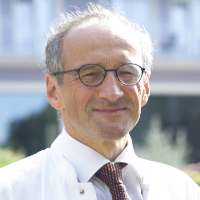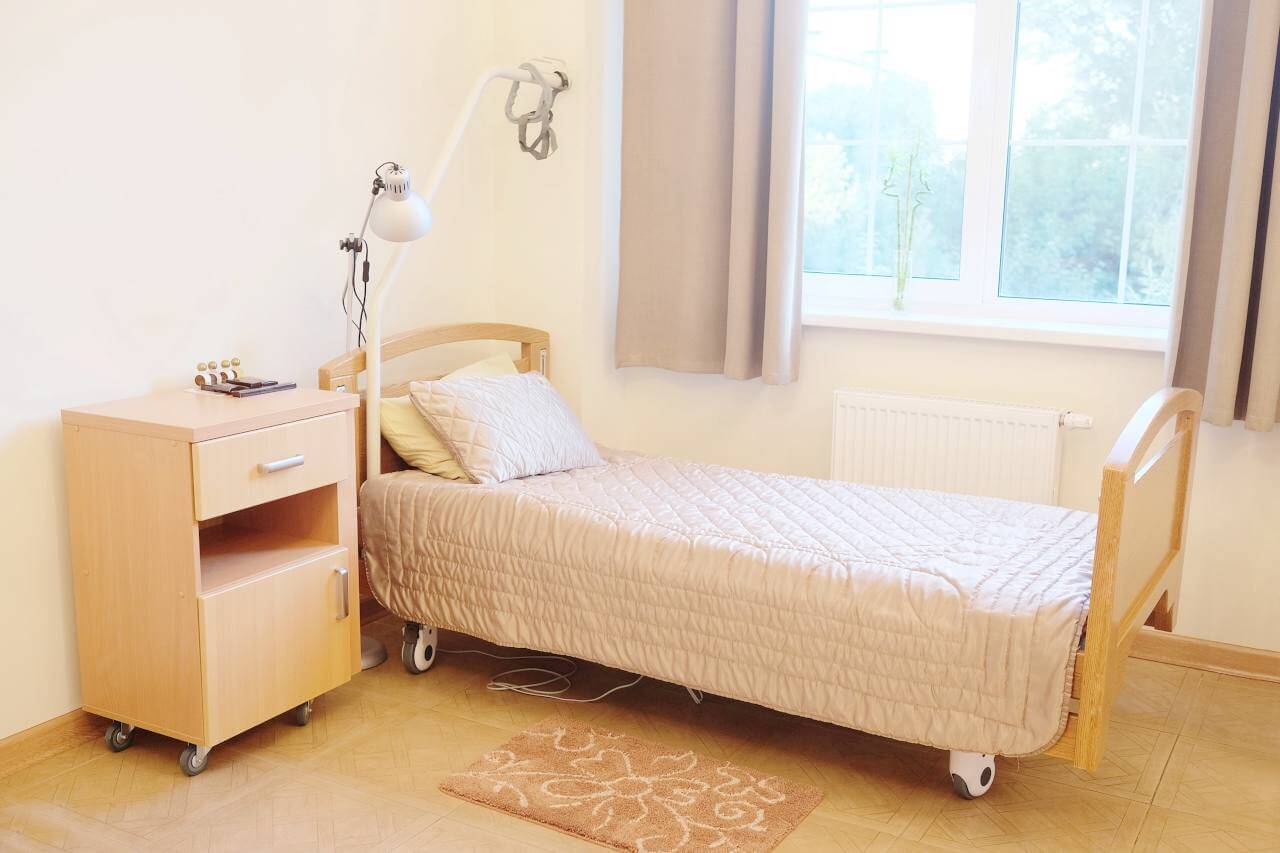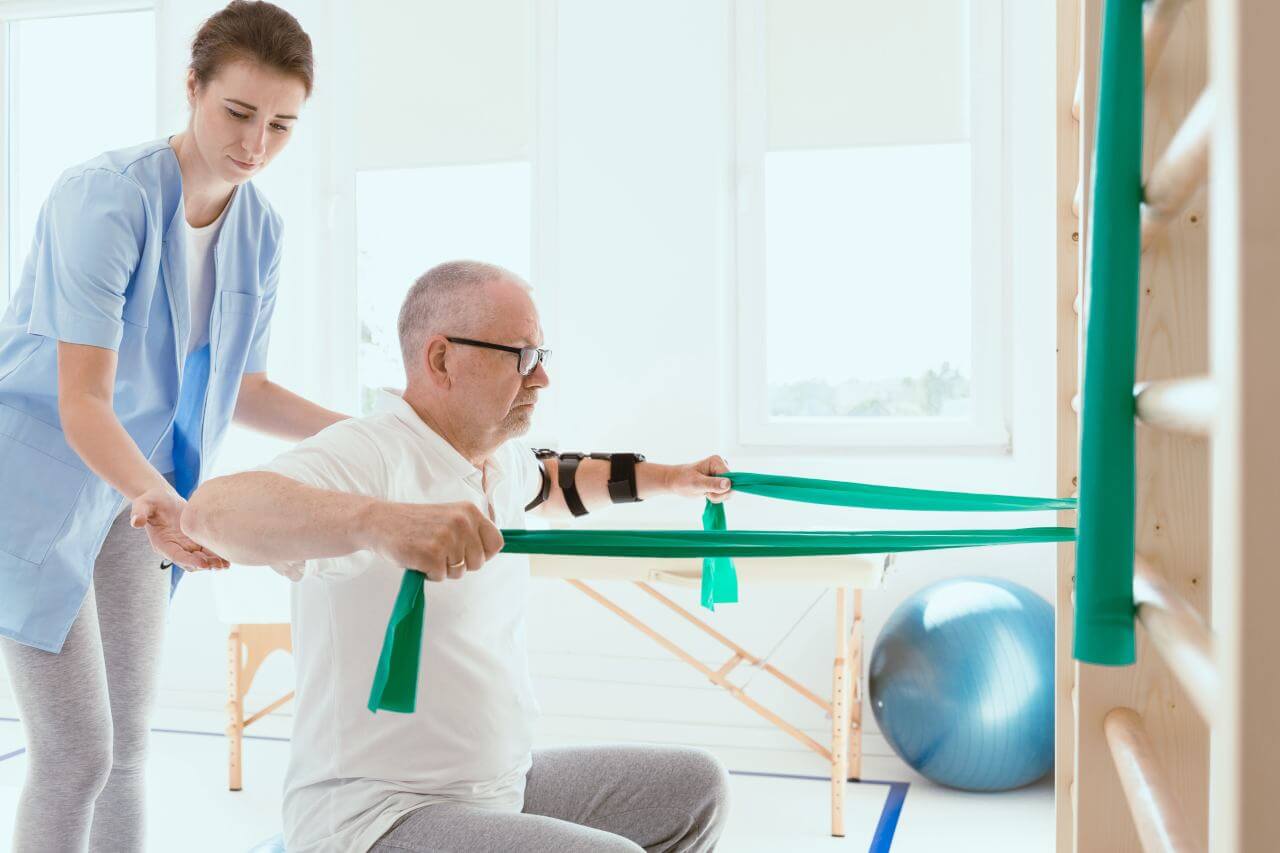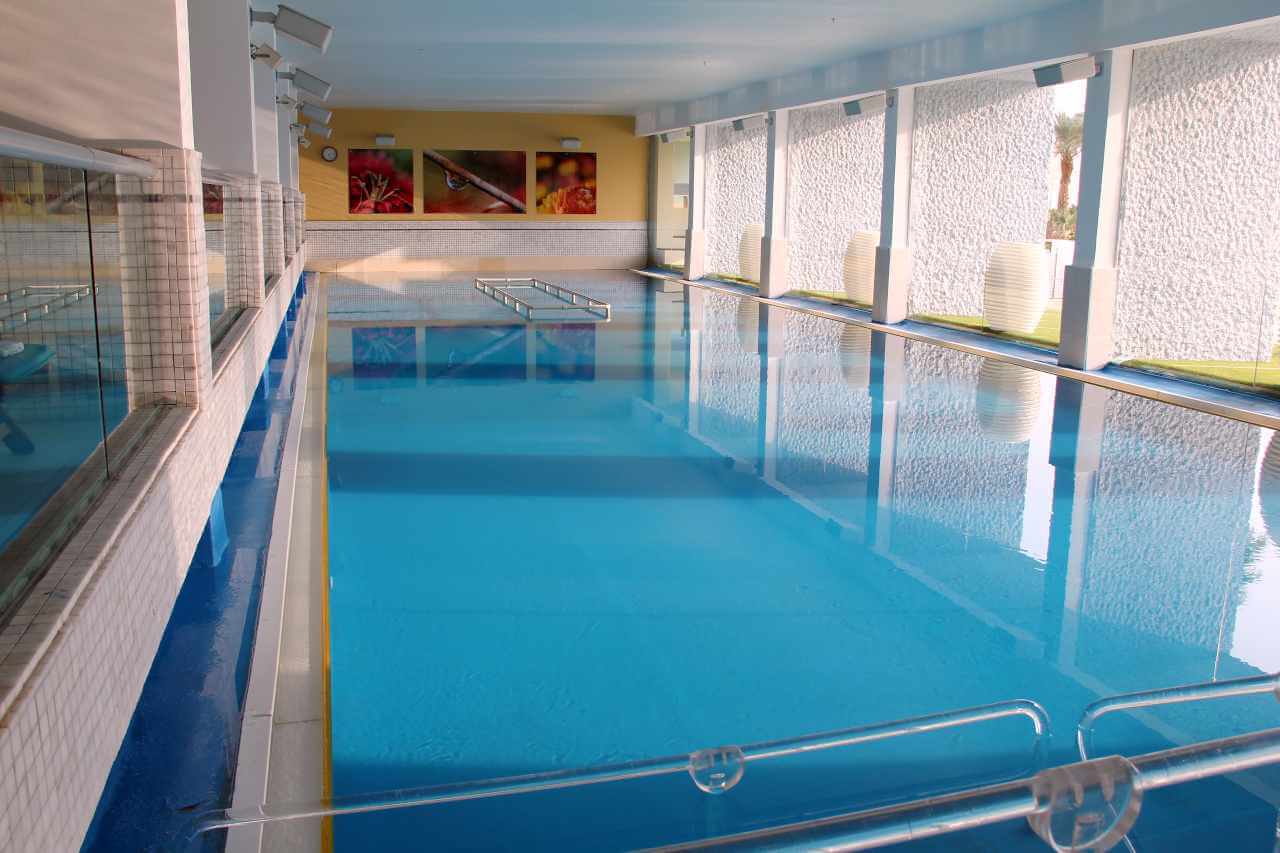
About the Department of Neurological Rehabilitation at Rehabilitation Clinic Bavaria Bad Kissingen
The Department of Neurological Rehabilitation at the Rehabilitation Clinic Bavaria Bad Kissingen offers all modern methods of rehabilitation treatment for patients with diseases of the nervous system. The department provides phase A, B, C, and D neurological rehabilitation using highly effective rehabilitation activities. The medical facility provides qualified care to patients after a stroke or traumatic brain injuries, patients with multiple sclerosis, Guillain-Barre syndrome, Parkinson's disease, brain and spinal cord tumors, neuromuscular diseases, and other neurological pathologies. The task of the rehabilitation specialists of the department is to restore as much as possible the ability to walk, speak, swallow and take care of oneself, which gives the patient the opportunity to live an active life without external help. The department's specialists recommend that rehabilitation treatment begin as soon as possible, as any delay may make the neurological deficit irreversible. The department offers both inpatient and outpatient neurological rehabilitation programs, with the best option selected by the attending physician. The medical team of the department consists of neurologists, physiotherapists, occupational therapists, sports therapists, speech therapists, and neuropsychologists. More than 30,000 patients are treated at the medical facility each year. The department has 120 inpatient beds. The department is headed by Dr. med. Franz Weilbach.
The specialists of the department provide phase A, B, C, and D rehabilitation treatment. The phase of neurological rehabilitation required for the patient is determined on the basis of the Barthel Index, which is a special scale for assessing the patient's level of self-care and mobility based on the sum of scores. In addition, the Barthel Index makes it possible to assess the patient's rehabilitation potential and set specific goals for the upcoming rehabilitation treatment.
Phase A and B rehabilitation is early neurological rehabilitation: the patient is unconscious and requires mechanical ventilation and intensive care. The main goals of these phases of rehabilitation are to bring the patient out of unconsciousness, verticalization, partial restoration of mobility, and prevention of secondary complications. Phase A and B rehabilitation takes place in the modern intensive care unit called "AWARE CARE". It was opened in 2015. Patients with strokes, hypoxic brain injuries, and severe conditions after surgery for traumatic brain injuries are most often treated here.
Neurological rehabilitation phases A and B are followed by phases C+ and C. In phase C+, mechanical ventilation is stopped, the patient is conscious, and communication skills are gradually regained. However, the patient still needs outside help because he or she cannot perform daily tasks independently. At this stage of neurological rehabilitation, the doctors of the department are faced with the task of improving the patient's general condition and eliminating movement restrictions. In phase C, intensive care is no longer necessary, and the patient actively participates in the rehabilitation process, although certain restrictions remain. Phase C rehabilitation is aimed at restoring the ability to perform daily activities (personal hygiene, self-care, cooking and eating, housework, etc.), practicing concentration, sensorimotor skills, and coordination.
Phase D is the final stage of the neurological rehabilitation process. At this stage of treatment, the patient achieves a high degree of independence and is able to perform daily tasks without outside assistance. At the end of this phase of rehabilitation, the patient is reintegrated into society, regains professional skills, and returns to work.
The gait school at the Department of Neurological Rehabilitation is worth mentioning. Diseases of the nervous system in many cases cause severe movement restrictions, which can be successfully eliminated by professional rehabilitation specialists using special equipment. The treatment program for restoring the ability to walk is developed taking into account the individual needs of the patient and his or her rehabilitation potential. At the same time, the specialists use a single algorithm for restoring the ability to walk. It consists of 3 stages: the 1st stage includes balance training on professional exercise equipment, the 2nd stage involves gait training on the G-EO System, and the 3rd stage includes treadmill training. The gait school training is conducted under the guidance of experienced physiotherapists.
The department specializes in neurological rehabilitation for patients with the following diseases:
- Stroke
- Pathological conditions after traumatic brain injuries and traumatic injuries to various parts of the nervous system
- Neuroimmunological diseases: multiple sclerosis, Guillain-Barre syndrome
- Neurodegenerative diseases: Parkinson's disease, Alzheimer's disease
- Brain and spinal cord tumors
- Neuromuscular diseases: polyneuropathies, spinal muscular atrophy, amyotrophic lateral sclerosis
- Other diseases of the nervous system
The department offers the following rehabilitation activities:
- Physiotherapy
- Sports therapy
- Speech therapy
- Occupational therapy
- Neurophysiological exercise therapy
- Psychological support
- Diet therapy
- Other methods of rehabilitation treatment
Curriculum vitae
Higher Education and Professional Career
- 1983 - 1984, 1985 - 1991 Medical studies, Julius Maximilian University of Wuerzburg.
- 1991 - 2003 Physician, Department of Neurology (Intensive Care Unit, Multiple Sclerosis Clinic, Stroke Unit, Movement Disorders Unit, Neuro-Oncology Unit), University Hospital Wuerzburg.
- Since 2003 Head Physician, Department of Neurological Rehabilitation, Rehabilitation Clinic Bavaria Bad Kissingen.
Photo of the doctor: (c) Klinik Bavaria Bad Kissingen





